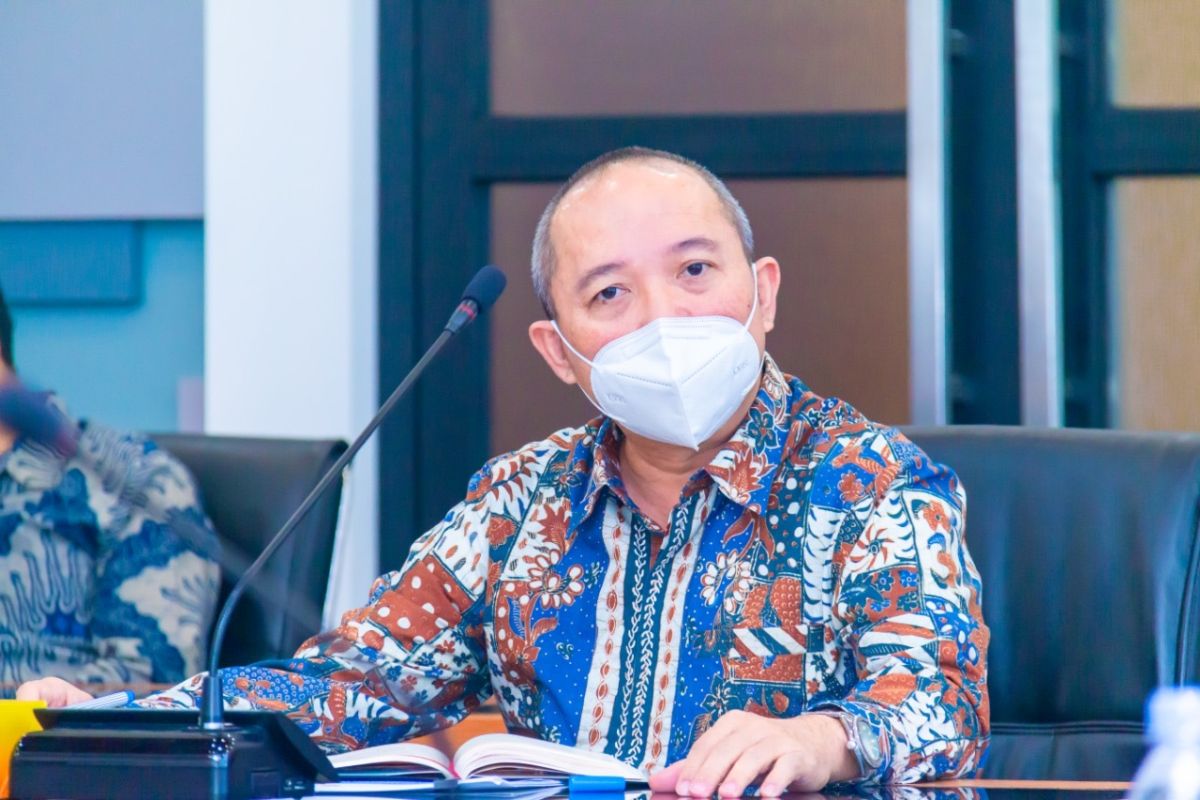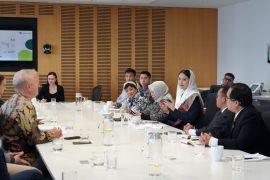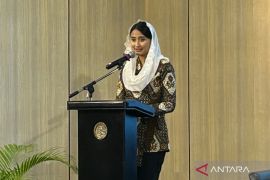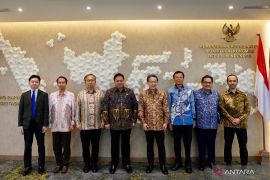The collaboration aims to create an environment-friendly domestic industry with low-carbon emissions.
"In an effort to pursue the implementation of a low-carbon industry, we conducted various seminar activities organized by the Ministry of Industry through the Ambon Research and Standardization Center some time ago," Head of the Standardization and Industrial Services Policy Agency (BSKJI) of the Ministry of Industry Doddy Rahadi stated here on Monday.
One of the main agendas during the seminar was to hold a scientific writing competition for the BSKJI work unit related to environment-friendly industries with predetermined topics, ranging from the circular economy to new and renewable energy, and the use of the electric vehicle ecosystem with battery-operated models, Rahadi noted.
As a result, 38 scientific papers were received from all BSKJI regional work units according to the six predetermined topics.
"This activity was designated to support the formulation made at the 26th Conference of the Parties (COP) of the United Nations Framework on Climate Change Conference (UNFCCC) on October 31-November 12, 2021, in Glasgow, Scotland," Rahadi noted.
Related news: Minister asks industry to adapt to global trends
The main agenda at the COP-26 was to review each country's targets related to the emissions produced, he noted.
"Several outcomes agreed upon during the COP-26 have become a homework for all countries, including Indonesia, to follow up," he remarked.
Rahadi expressed Indonesia's readiness to follow up on the results of the COP-26 by starting to implement mitigation and adaptation activities to meet the emission reduction targets contained in the Nationally Determined Contribution (NDC) document, with a target of reducing greenhouse gas emissions by 29 percent.
"Five sectors in the NDC -- energy, waste, industrial processes and production use (IPPU), agriculture, and forestry -- play a role in reducing greenhouse gas (GHG) emissions," he noted.
Furthermore, to support President Joko Widodo's (Jokowi's) speech at the COP-26 meeting, the Indonesian government has readied three main strategies for low-carbon development (PRK) as an important step to implement a green economy.
"The strategies comprise implementing the net-zero emissions policy to reduce GHG emissions, a green stimulus strategy for economic recovery, and the implementation of a low-carbon development policy (PRK) to meet the targets of the 2020-2024 National Medium Term Development Plan," Rahadi stated.
The low-carbon development strategy not only encourages the industrial sector to contribute to national economic growth but also encourages the reduction of GHG emissions, which come from industrial processes and product use (IPPU), energy use, and waste.
"Hence, it is necessary to strike a balance to harmonize economic growth and environmental functions through the development of green industries," Rahadi concluded.
Related news: Taxation bill to reduce carbon emissions, boost green economy: govt
Translator: Sella P G, Resinta S
Editor: Rahmad Nasution
Copyright © ANTARA 2021












